Media coverage
Share

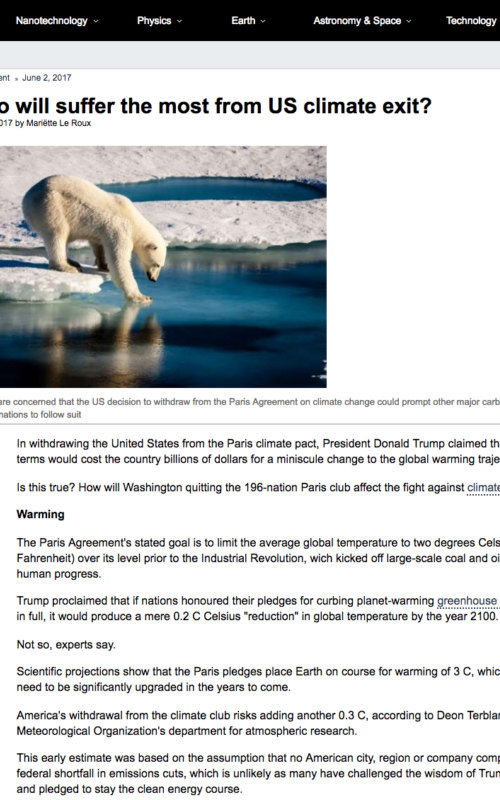
Phys Org
In withdrawing the United States from the Paris climate pact, President Donald Trump claimed that honouring its terms would cost the country billions of dollars for a miniscule change to the global warming trajectory.
Is this true? How will Washington quitting the 196-nation Paris club affect the fight against climate change? Quoting Climate Analytics' Bill Hare.
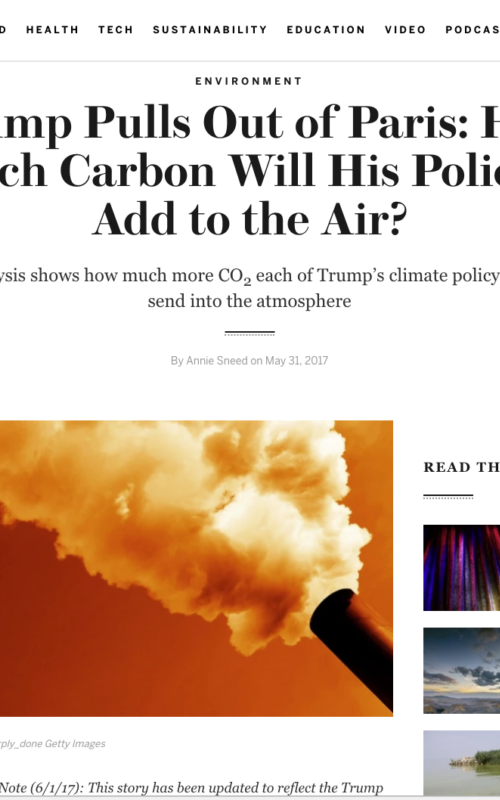
Scientific American
A detailed analysis shows how much more CO2 each of Trump’s climate policy changes would send into the atmosphere. “This amounts to a very significant reversal of the downward trajectory that U.S. emissions have been on,” explains Bill Hare, one of the report authors and CEO of Climate Analytics, a nonprofit climate science and policy institute. “Under Trump's policies the U.S. will fall far short of its Paris climate goals.”
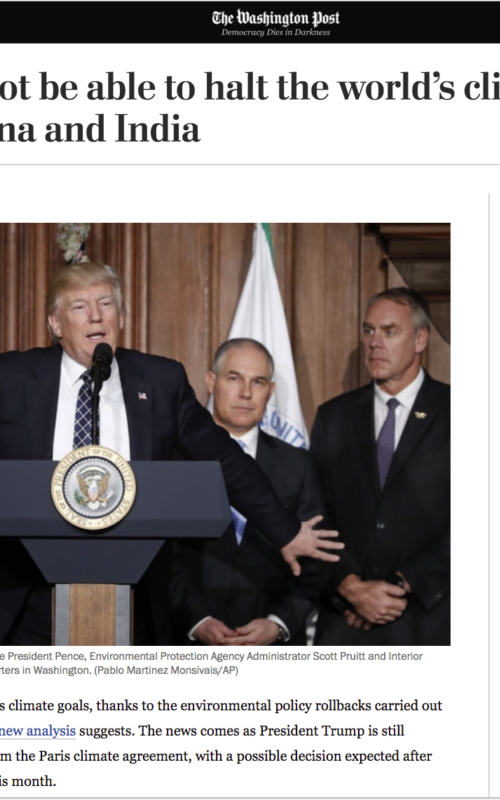
The Washington Post
President Trump’s decision Thursday to withdraw the United States from the Paris climate agreement could make it difficult, if not impossible, for the world to stay on track to reach an internationally agreed-upon goal for limiting dangerous global warming, scientists said. With comments from Climate Analytics CEO Bill Hare.
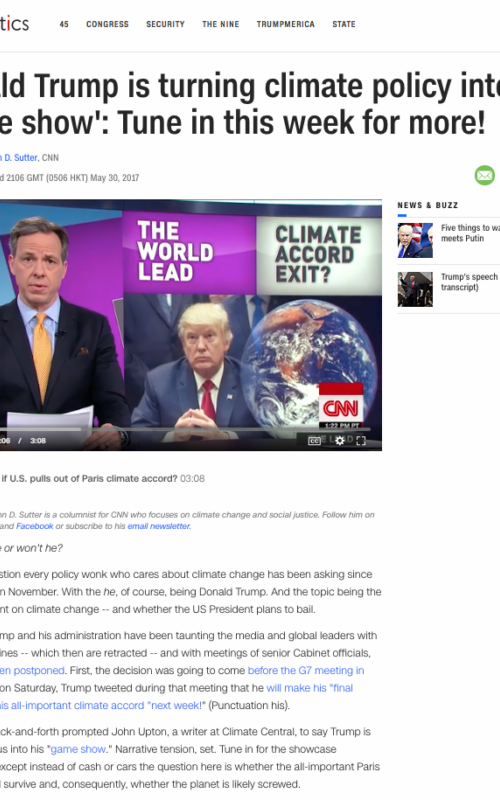
CNN
Will he or won't he? That's the question every policy wonk who cares about climate change has been asking since election night in November. With the he, of course, being Donald Trump. And the topic being the Paris Agreement on climate change -- and whether the US President plans to bail.
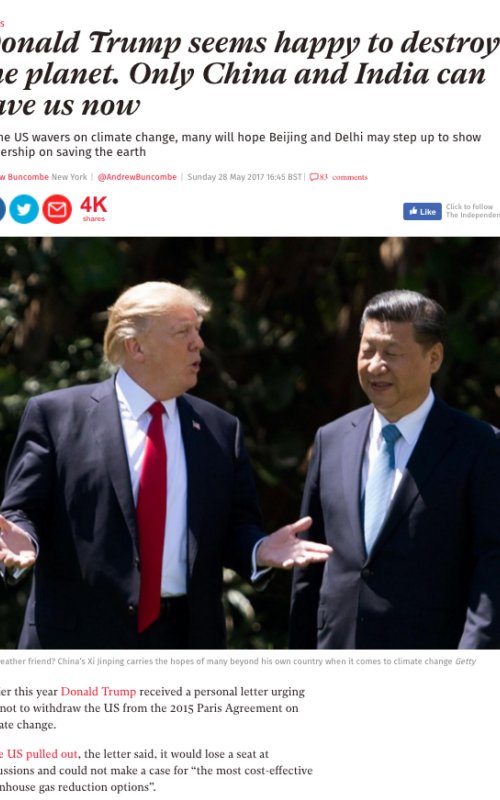
The Independent
As the US wavers on climate change, many will hope Beijing and Delhi may step up to show leadership on saving the earth
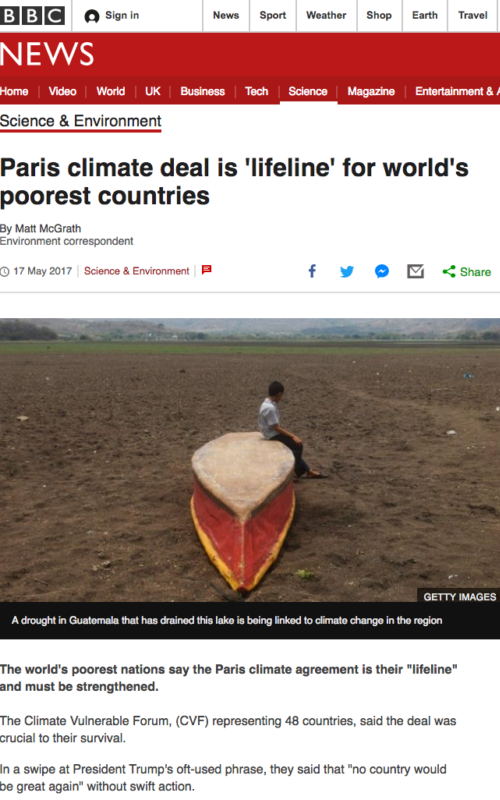
BBC News
The world's poorest nations say the Paris climate agreement is their "lifeline" and must be strengthened.
The Climate Vulnerable Forum, (CVF) representing 48 countries, said the deal was crucial to their survival.
In a swipe at President Trump's oft-used phrase, they said that "no country would be great again" without swift action.
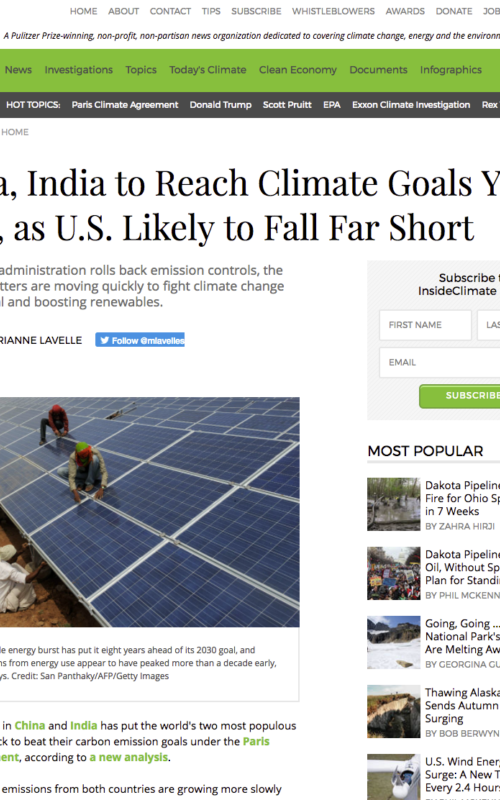
Inside Climate News
Slowing coal use in China and India has put the world's two most populous countries on track to beat their carbon emission goals under the Paris climate agreement, according to a new analysis. That would be enough to more than offset the relatively poor performance expected from the United States as President Donald Trump rolls back controls and puts the U.S. on track to miss its Paris pledge.
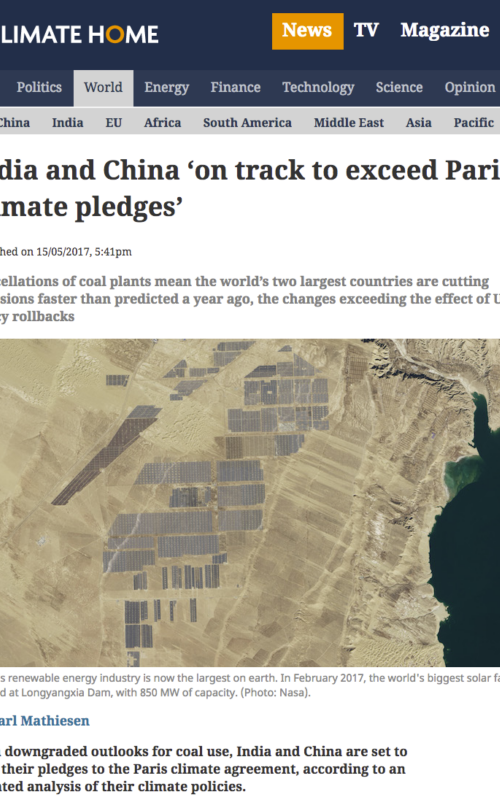
Climate Home
Cancellations of coal plants mean the world’s two largest countries are cutting emissions faster than predicted a year ago, the changes exceeding the effect of US policy rollbacks. Dr Bill Hare, CEO of Climate Analytics, said the changes in China and India “if continued and accelerated” meant it would be possible to stop the world warming more than 1.5C – the most ambitious goal of the Paris agreement and one seen as essential to saving coral reefs and low lying island nations.

The Washington Post
China and India “are going to slow the global growth in CO2 emissions significantly, the United States’ actions under President Trump will offset that a bit, but not sufficient to actually stop that slowing of the global growth of emissions,” said Bill Hare, CEO of Climate Analytics and a senior scientist with the organization, at a Monday news conference to introduce the new findings.
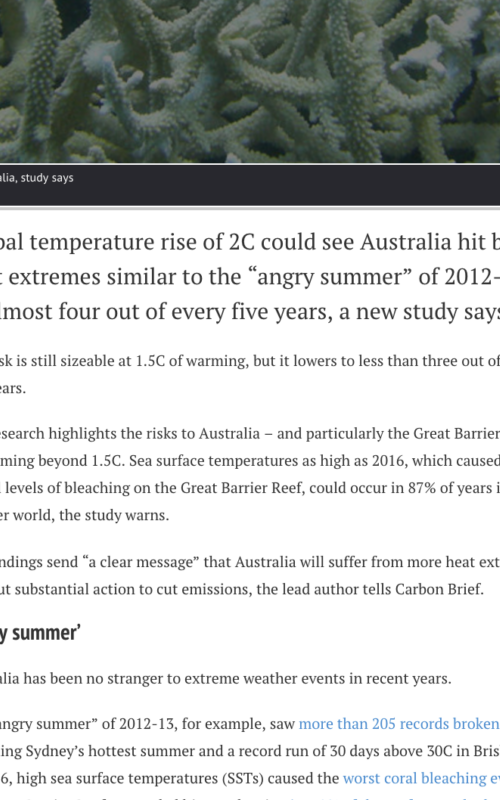
Carbon Brief
Global temperature rise of 2°C could see Australia hit by heat extremes similar to the “angry summer” of 2012-13 in almost four out of every five years, a new study says. The risk is still sizeable at 1.5°C of warming, but it lowers to less than three out of every five years. “The impacts of heatwaves in Australia are already very substantial to date and ocean warming has just led to the biggest coral bleaching event at the Great Barrier Reef," commented Climate Analytics' physicist Dr Carl-Friedrich Schleussner. He added that the paper "illustrates the substantial benefits of limiting warming to 1.5°C for Australia, a country with currently inadequate climate policies to even limit warming to 2°C.”